

A new release 0.12.0 of
Rcpp arrived on the
CRAN network for
GNU R this morning, and I also pushed a
Debian package upload.
Rcpp has become
the most popular way of enhancing
GNU R with C++ code. As of today, 423 packages on
CRAN depend on
Rcpp for making analyses go faster and further. Note that this is 60 more packages since the
last release in May! Also,
BioConductor adds another 57 packages, and casual searches on
GitHub suggests many more.
And according to Andrie De Vries,
Rcpp has now page rank of one on CRAN as well!
And with this release,
Rcpp also becomes ready for
Big Data, or, as they call it in Texas,
Data.
Thanks to a
lot of work and several pull requests by
Qiang Kou, support for
R_xlen_t has been added.
That means we can now do stunts like
R> library(Rcpp)
R> big <- 2^31-1
R> bigM <- rep(NA, big)
R> bigM2 <- c(bigM, bigM)
R> cppFunction("double getSz(LogicalVector x) return x.length(); ")
R> getSz(bigM)
[1] 2147483647
R> getSz(bigM2)
[1] 4294967294
R>
where prior versions of
Rcpp would just have said
> getSz(bigM2)
Error in getSz(bigM2) :
long vectors not supported yet: ../../src/include/Rinlinedfuns.h:137
>
which is clearly not Texas-style. Another wellcome change, also thanks to
Qiang Kou, adds encoding support for strings.
A lot of other things got polished. We are
still improving exception handling as we still get the odd curveballs in a corner cases.
Matt Dziubinski corrected the
var() computation to use the proper two-pass method and added better support for lambda functions in Sugar expression using
sapply(),
Qiang Kou added more pull requests mostly for string initialization, and
Romain added a pull request which made data frame creation a little more robust, and
JJ was his usual self in tirelessly looking after all aspects of Rcpp Attributes.
As always, you can follow the development via the
GitHub repo and particularly the
Issue tickets and
Pull Requests. And any discussions, questions, ... regarding
Rcpp are always welcome at the
rcpp-devel mailing list.
Last but not least, we are also extremely pleased to annouce that
Qiang Kou has joined us in the Rcpp-Core team. We are looking forward to a lot more awesome!
See below for a detailed list of changes extracted from the
NEWS file.
Changes in Rcpp version 0.12.0 (2015-07-24)
-
Changes in Rcpp API:
-
Rcpp_eval() no longer uses R_ToplevelExec when evaluating R expressions; this should resolve errors where calling handlers (e.g. through suppressMessages()) were not properly respected.
-
All internal length variables have been changed from
R_len_t to R_xlen_t to support vectors longer than 2^31-1 elements (via pull request 303 by Qiang Kou).
-
The sugar function
sapply now supports lambda functions (addressing issue 213 thanks to Matt Dziubinski)
-
The
var sugar function now uses a more robust two-pass method, supports complex numbers, with new unit tests added (via pull request 320 by Matt Dziubinski)
-
String constructors now allow encodings (via pull request 310 by Qiang Kou)
-
String objects are preserving the underlying SEXP objects better, and are more careful about initializations (via pull requests 322 and 329 by Qiang Kou)
-
DataFrame constructors are now a little more careful (via pull request 301 by Romain Francois)
-
For R 3.2.0 or newer,
Rf_installChar() is used instead of Rf_install(CHAR()) (via pull request 332).
-
Changes in Rcpp Attributes:
-
Use more robust method of ensuring unique paths for generated shared libraries.
-
The
evalCpp function now also supports the plugins argument.
-
Correctly handle signature termination characters (' ' or ';') contained in quotes.
-
Changes in Rcpp Documentation:
-
The
Rcpp-FAQ vignette was once again updated with respect to OS X issues and Fortran libraries needed for e.g. RcppArmadillo.
-
The included
Rcpp.bib bibtex file (which is also used by other Rcpp* packages) was updated with respect to its CRAN references.
Thanks to
CRANberries, you can also look at a
diff to the previous release As always, even fuller details are on the
Rcpp Changelog page and the
Rcpp page which also leads to the downloads page, the
browseable doxygen docs and zip files of doxygen output for the standard formats. A
local directory has source and documentation too. Questions, comments etc should go to the
rcpp-devel mailing list off the
R-Forge page.
This post by Dirk Eddelbuettel originated on his Thinking inside the box blog. Please report excessive re-aggregation in third-party for-profit settings.
 It is with a mix of pride and joy, but also some genuine astonishment and amazement, that we can share that the counter of reverse dependencies at CRAN for our RcppArmadillo package for R just crossed 1000 packages [1]:
It is with a mix of pride and joy, but also some genuine astonishment and amazement, that we can share that the counter of reverse dependencies at CRAN for our RcppArmadillo package for R just crossed 1000 packages [1]:
 Conrad actually posted this a few weeks ago, by my count we were then still a few packages shy. In any event, having crossed this marker this summer, either then or now, and after more than a dozen years of working on the package is a really nice moment. Google Scholar counts nearly 500 citations for our CSDA paper (also this vignette), and that ratio of nearly a citation for every two packages used is certainly impressive. We have had the pleasure of working with so many other researchers and scientists using RcppArmadillo. Its combination of performance (C++, after all, and heavily tuned) and ease-of-use (inspired by another popular flavour for matrix computing that is however mostly interpreted) makes for a powerful package, and we are delighted to see it used so widely.
Working on this with Conrad has been excellent. The (upstream) package (now at this GitLab repo) has received numerous releases at a rate that is in fact so high that we now slow it down to not exceed a monthly cadence of uploads to CRAN. But the package should always be in release condition at its GitHub repo, and is frequently also installable in rc versions via the Rcpp drat repo.
So with that, a big Thank You! to Conrad, to Romain for all the early work laying the package foundations, and to all the users of (Rcpp)Armadillo for helping us along with testing, suggestions, extensions, and bug reports. Keep em coming!
If you like this or other open-source work I do, you can now sponsor me at GitHub.
[1] The code snippet shows that we remove some possible duplicates in the count (mostly for the total of packages). This is a correction we use across packages for consistency. It does not have an effect for RcppArmadillo.
Conrad actually posted this a few weeks ago, by my count we were then still a few packages shy. In any event, having crossed this marker this summer, either then or now, and after more than a dozen years of working on the package is a really nice moment. Google Scholar counts nearly 500 citations for our CSDA paper (also this vignette), and that ratio of nearly a citation for every two packages used is certainly impressive. We have had the pleasure of working with so many other researchers and scientists using RcppArmadillo. Its combination of performance (C++, after all, and heavily tuned) and ease-of-use (inspired by another popular flavour for matrix computing that is however mostly interpreted) makes for a powerful package, and we are delighted to see it used so widely.
Working on this with Conrad has been excellent. The (upstream) package (now at this GitLab repo) has received numerous releases at a rate that is in fact so high that we now slow it down to not exceed a monthly cadence of uploads to CRAN. But the package should always be in release condition at its GitHub repo, and is frequently also installable in rc versions via the Rcpp drat repo.
So with that, a big Thank You! to Conrad, to Romain for all the early work laying the package foundations, and to all the users of (Rcpp)Armadillo for helping us along with testing, suggestions, extensions, and bug reports. Keep em coming!
If you like this or other open-source work I do, you can now sponsor me at GitHub.
[1] The code snippet shows that we remove some possible duplicates in the count (mostly for the total of packages). This is a correction we use across packages for consistency. It does not have an effect for RcppArmadillo.





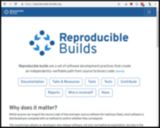


 Previously:
Previously: 


 This month, the Reproducible Builds project restarted our IRC meetings, managing to convene twice: the first time on October 12th (
This month, the Reproducible Builds project restarted our IRC meetings, managing to convene twice: the first time on October 12th (





 Here is my monthly update covering what I have been doing in the free software world during October 2020 (
Here is my monthly update covering what I have been doing in the free software world during October 2020 (


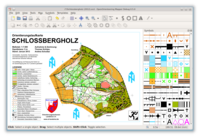


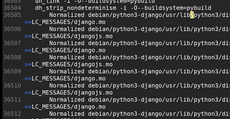


















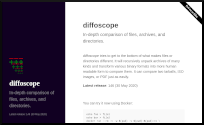

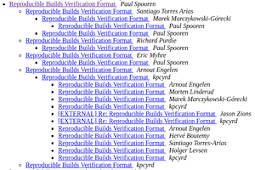
 The fourth maintenance release 1.0.4 of
The fourth maintenance release 1.0.4 of  A new release 0.12.0 of
A new release 0.12.0 of